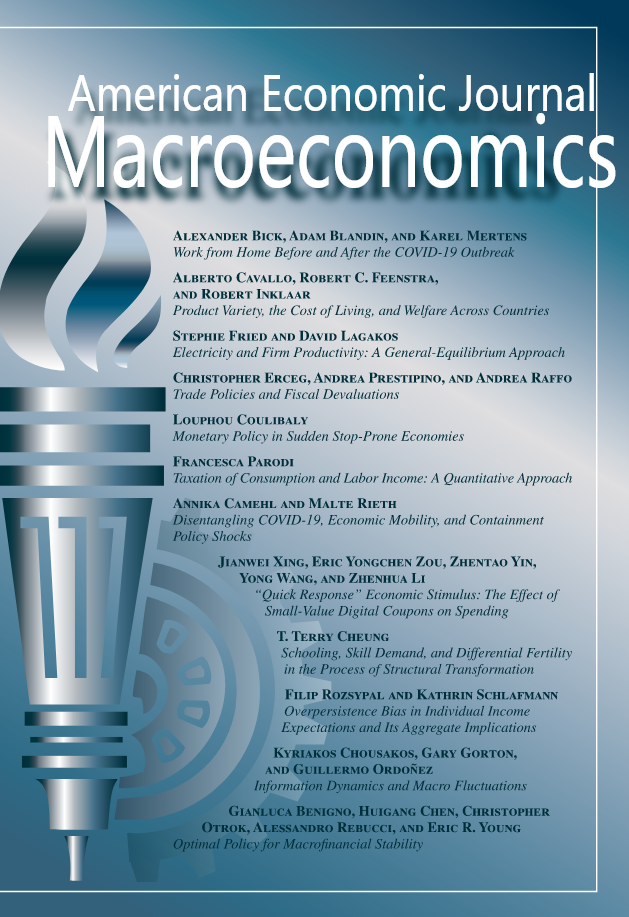Household Search and the Marital Wage Premium
IF 5.7
1区 经济学
Q1 ECONOMICS
引用次数: 19
Abstract
We develop a model where selection into marriage and household search generate a marital wage premium. Beyond selection, married individuals earn higher wages for two reasons. First, income pooling within a joint household raises risk-averse individuals’ reservation wages. Second, married individuals climb the job ladder faster, as they internalize that higher wages increase their partner’s selectivity over offers. Specialization according to comparative advantage in search generates a premium that increases in spousal education, as in the data. Quantitatively, household search explains 10–33 percent and 20–58 percent of the premium for males and females, respectively, and accounts for its increase with spousal education. (JEL D83, J12, J16, J24, J31, J64)住户搜寻与婚姻工资溢价
我们开发了一个模型,其中选择进入婚姻和家庭搜索产生婚姻工资溢价。除了自然选择之外,已婚人士挣得更高的工资还有两个原因。首先,共同家庭的收入汇集提高了厌恶风险的个人的储备工资。其次,已婚人士在工作阶梯上爬得更快,因为他们认为,更高的工资会增加伴侣对工作机会的选择性。如数据所示,根据搜索中的比较优势进行专业化会产生溢价,从而提高配偶的教育程度。从数量上看,男性和女性的家庭寻找分别解释了10 - 33%和20 - 58%的溢价,并解释了配偶教育程度的增加。(jj 83, j12, j16, j24, j31, j64)
本文章由计算机程序翻译,如有差异,请以英文原文为准。
求助全文
约1分钟内获得全文
求助全文
来源期刊

American Economic Journal-Macroeconomics
ECONOMICS-
CiteScore
8.20
自引率
1.70%
发文量
58
期刊介绍:
American Economic Journal: Macroeconomics focuses on studies of aggregate fluctuations and growth, and the role of policy in that context. Such studies often borrow from and interact with research in other fields, such as monetary theory, industrial organization, finance, labor economics, political economy, public finance, international economics, and development economics. To the extent that they make a contribution to macroeconomics, papers in these fields are also welcome.
 求助内容:
求助内容: 应助结果提醒方式:
应助结果提醒方式:


